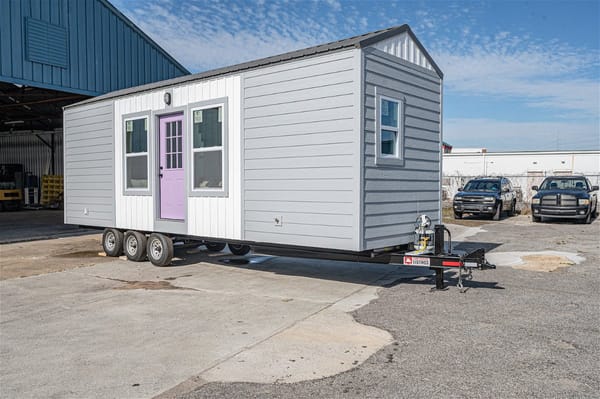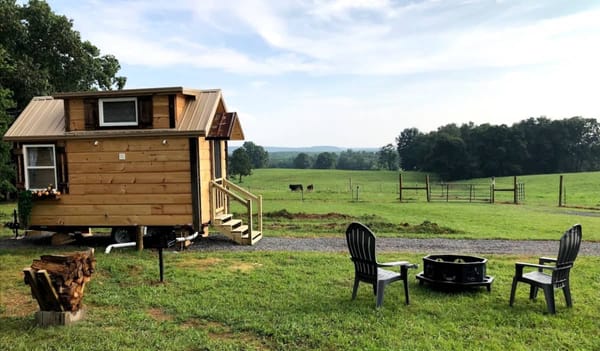5 Steps To Avoid When You're Buying A Tiny House
It is true. Tiny houses and more traditional stick-built houses are not one and the same. They are similar in a lot of ways, yes. But they are not the same. For instance, due to their demure size contractors and builders are not able to take advantage of bulk pricing or “contractor prices”. That said, they have to pass on the expense to the client. That said, there are very specific things to avoid when buying a tiny house. It goes beyond just having the financing or knowing what it is like to live in a small space. It is about thinking intelligently and strategically about the purchase. These 5 tips may help you or at least show you what to avoid when buying a tiny house.
THERE IS NOTHING WRONG WITH A ONCE OVER
One common problem that future tiny homeowners face is misinformation. Not so much with professional builders but with DIYers and those just selling their tiny house after having lived in it, when someone is trying to sell a house, they may do next to anything to make the sale. This doesn’t necessarily mean you are going to be lied to but rather, it doesn’t hurt to get a second opinion or have a professional give the house a once over. With so many restrictions when it comes to building and permits, you want to make sure that you are getting what you are paying for. Nobody would buy a more traditional, larger house without getting it properly inspected, so why should you do any different?
UNDERESTIMATING YOUR SPACE NEEDS
The average size of a tiny house will run upwards of 280 sq.ft. square feet. This isn’t a large amount of space but it is bigger than older tiny houses that often came in at just 120 sq.ft. Before buying you need to think about your personal size needs as well as that of your family. More and more tiny houses are being occupied by families; 2, 3, or even 4 people. Younger children can easily adapt to living in a smaller space. But what about older children? They require more and they certainly desire more. They need a certain level of privacy and the older they are, the more they demand it. You may also want to think about the role your home will be playing. Will you be entertaining a lot? Will you be working from home? If so, do you need a dedicated office space? These arrangements are not a deal-breaker. They are just points of consideration that require creating thinking.
GOING IN BLINDLY
You wouldn’t purchase an automobile without first going for a test drive, would you? At the shoe store, you walk around for a bit checking the fit and style of a potential new pair of shoes. So why then would you buy a tiny house without having stayed a single night in one? Tiny house rentals are increasingly easy to come across so consider booking even a weekend in one. Learn the nuances of a sleeping loft, a universal sink, or even a compost toilet. Don’t walk into your purchase blindly.
HAVING A PLACE TO PARK IT
Have you thought about where you are going to park your tiny home? Do you currently own land? Have you secured a legal parking spot? Does your spot have access to water and utilities? Before you buy any kind of tiny home - from a Skoolie to a tiny house on wheels - make sure you are at least vaguely aware of the zoning laws in your area. Even with the rising popularity of tiny houses, there are still a large number of regions that don’t allow tiny houses on a permanent basis. Don’t assume campgrounds will welcome you with open arms or your parents will allow their driveway to become an RV park. Take the time to ask about and understand the zoning laws in your state and county.
FIGURE OUT UTILITY OPTIONS
A good portion of tiny housers choose to go green in terms of energy generation and consumption. The size of a tiny house and the minimal requirements lend themselves to those ideas. For that, you need to know if the tiny house your purchase is wired for shore power (read: a plug that inserts directly into your tiny house giving it electrical current) or alternative energy. If your home is the latter you should be aware of the cost of solar panel maintenance, the needs of panels in order to create electricity, understanding a basic conversion table, and even how to mitigate for a week of cloudy skies.
Like any other purchase, you may experience some buyer remorse. Some things may come up that you didn’t fully consider. But by taking heed to these 5 tips your tiny home buying process can be an easy one.



